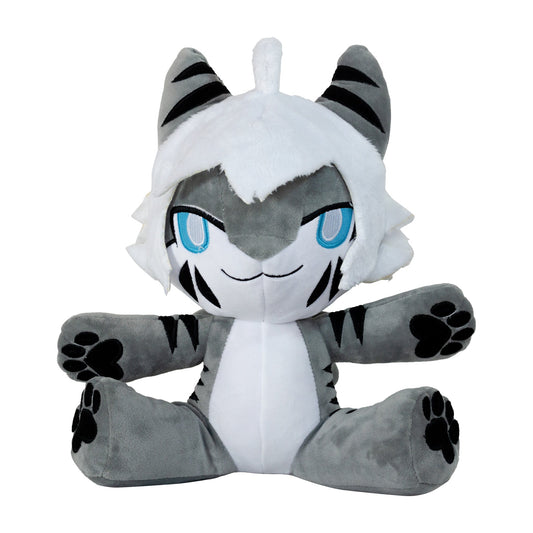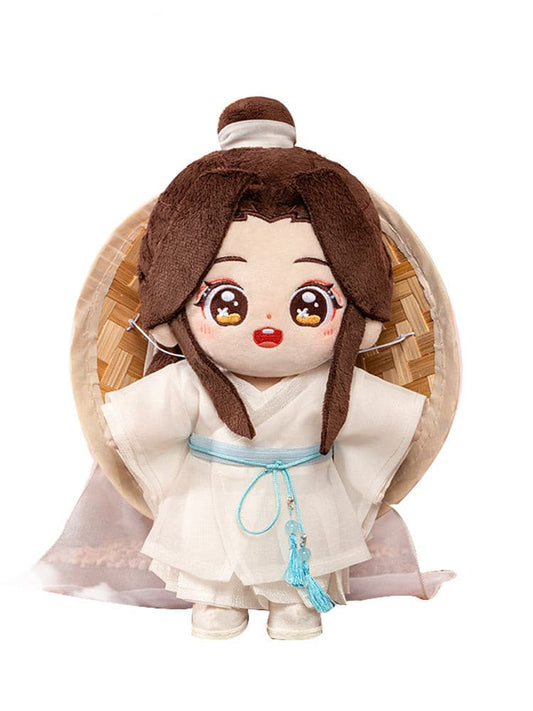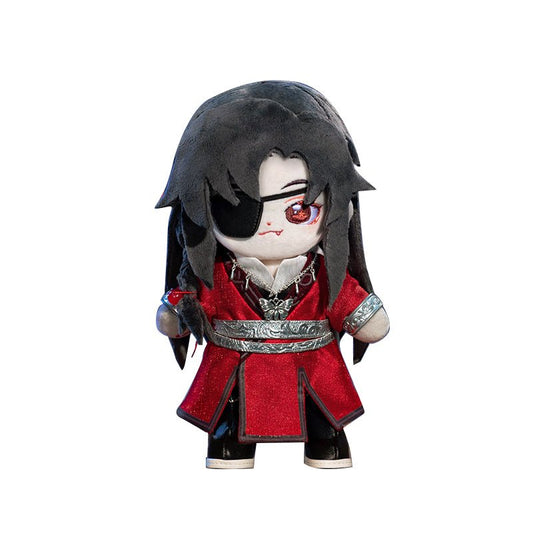The reality that stress is the silent pandemic in America and worldwide is now well accepted.
As levels of stress rise, many people turn to comfort objects to de-stress. But how do these objects help? We spent some time studying the science of comfort objects, and in this article, we share some insights we obtained.
We start by focusing on why stress levels are so high in today's society. A definition of comfort objects follows this before we get into the gist of the matter and explain how comfort objects work for people battling stress.
Why Are Stress Levels on the Rise?
Rachel Martin of the news website NPR observes that even though "It feels so painfully obvious to say 2020 induced much stress," the reality is that the pandemic exacerbated what we had already known.
Martin interviewed several participants who suggested that the stress induced by the pandemic found people already struggling to cope. But what is really stressing Americans?
A study by the American Psychology Association published in March 2022 provides details on what is stressing Americans.
Here are the statistics that tell the story:
- 87 percent are stressed by rising prices of essential items like groceries, energy, and gas due to inflation.
- 81 percent worry about issues related to accessing supplies.
- Global uncertainty was identified as a source of stress by 80% of the participants.
- Possible Russian retaliation in the form of nuclear threats and cyber-attacks gives 80% of participants sleepless nights.
- The invasion of Ukraine by Russia stresses 80% of participants.
One of the main stressors today is inflation, which can cause financial problems that can spill over into the family. This view is acknowledged by Sarah Fielding of the mental health resource VeryWellMind.com.
Fielding cites Kara Nassour, a licensed professional counselor who says that inflation reduces the power of money in your pocket. This can increase stress around finances.
Fielding states, "Financial stress can create chronic anxiety, exhaustion, strained relationships with partners, and prevent a person from getting housing, education, or healthcare." This can be worse among single-parent families.
Add this to other everyday stresses like work deadlines, bereavement, illness, experiencing crime or abuse, and divorce, and you will understand why our society is so stressed.
Are You Stressed?

Before you start thinking about how to deal with your stress, it's vital to identify the indicators. The medical information site WebMD lists some signs and symptoms to look out for, including,
- Having feelings of being overwhelmed as if you have diminishing control of the world around you.
- Being easily agitated, moody, or frustrated.
- Finding it hard to quieten your mind and relax.
- Loneliness and loss of self-esteem.
- You are physically unhealthy.
- Failing to focus, forgetting things easily, poor judgment, and only focusing on the negative side of life.
- Changes in appetite.
- Avoiding responsibilities and procrastination.
- Exhibiting nervous behaviors like nail biting and pacing.
What Are Comfort Objects?

HealthyPlace.com provides information on all things to do with mental health. Writing for the site, Natasha Tracy says, "A comfort object can be anything. It [can] be small enough to fit in a pocket, purse, backpack, etc., but beyond that, it can be anything you find soothing."
Writing for Yahoo News, Nina Bradley defines comfort objects as anything "designed to soothe and comfort people who suffer from anxiety and stress, possibly helping them rest and relax more soundly."
Comfort objects are also known as transitional objects, particularly in relation to children. The website HealthyChildren.org explains that these objects assist children "... make the emotional transition from dependence to independence."
HealthyChildren.org debunks the myth that transitional objects signify insecurity or weakness. The site advises, "In fact, a transitional object can be so helpful you may want to help then choose one and build it into [the] night-time ritual."
Why do Stressed People Find Comfort in Objects?
Licensed clinical social worker Allan Schwartz notes that comfort objects provide a safe space because as we get used to them, they begin to form "part of what feels familiar, safe and comforting."
Schwartz adds, "It is common for adults to keep prized possessions owned by their parents when they were growing up." He gives an example of the comfort an individual can get from wearing a watch belonging to their father that passed on as a comforting reminder of that relationship."
According to Schwartz, comfort objects "serve the purpose of reminding us of the happy parts of our childhood and help comfort us when we are feeling stressed, depressed or very anxious."
Tanya Peterson is an author of anxiety self-help books. She explains that when you carry a comfort object, you don't just reduce anxiety at the moment; you learn to shift your mind from the object that causes you to stress to the comfort object. As your thoughts shift, your anxiety decreases.
How Comfort Objects Work
The University of Pennsylvania's PennMedicine.org uses weighted blankets to explain how comfort objects work. The organization explains that comfort objects use "pressure therapy," which induces calm pressure on the body, making you feel as if you have been hugged.
It adds, "The gentle pressure on your body provided by a weighted blanket can also help to calm you by activating your parasympathetic nervous system, which lowers your heart rate when you're stressed."
Hugs Help the Body Produce Feel-Good Hormones
When comfort objects provide the welcome gentle pressure that feels like a hug, they help the body to produce what are called feel-good hormones. One of these hormones is called oxytocin.
Oxytocin – sometimes known as the "love hormone" or "cuddle chemical" – is defined by the Cleveland Clinic as "a natural hormone that stimulates uterine contractions in childbirth and lactation after childbirth."
The Cleveland Clinic adds that oxytocin also "… affects aspects of human behavior and the male and female reproductive systems."
Healthline.com acknowledges the effect of oxytocin in stress reduction. The medical information provider cites scientific studies concluding that oxytocin is associated with happiness and less stress. The hormone helps lower blood pressure and the stress hormone norepinephrine.
A study published in the journal Current Opinion in Behavioral Sciences concluded that "oxytocin plays a significant role in regulating the behavioral and neurobiological responses to stress."
If we accept that hugs can help produce oxytocin, which makes us feel good and helps reduce stress, we should also agree that we need more hugs. However, getting hugs from other humans or live animals is not always possible. This is when comfort objects, including stuffed animals, come to the rescue.
In agreement with this view, Andrea Michelson of Insider.com recommends products like stuffed animals, body pillows, and weighted blankets for those craving a hug but are unable to get it from another human being.
Is it Normal for an Adult to Have a Comfort Object?
One of the misconceptions is that comfort objects should only be used by children. The reality is that every human being can benefit from a hug. Since hugs from other humans are not always available, adults can turn to comfort objects like stuffed animals to reduce stress.
If you are an adult still attached to your soft toy, never be ashamed because there are millions of other adults like you. In an article published in TheGuardian.com, Sirin Kale tells the story of adults who sleep with soft toys.
Kale cites studies concluding that "44% of adults have held on to their childhood teddies and dolls, and as many as 34% of adults still sleep with a soft toy every night."
Be Holistic

There is no denying that we are a stressed generation. However, the good news is that we can do a lot to lower our stress levels. Apart from using comfort objects such as stuffed animals, you can adopt several other measures to have a holistic solution to your stress.
Lauren Ragland writes for the medical news information site WebMD.com and identifies ways of holistically managing stress:
- Maintain a positive attitude.
- Acknowledge the reality that you're not in control of everything.
- Clearly articulate your feelings, beliefs, and opinions, and avoid bottling things up, as this can lead to anger, being defensive, and passively accepting the treatment you get from others.
- Learn effective time management.
- If an event has the potential to introduce stress in your life, learn to say no politely.
- Create time to enjoy your hobbies and interests.
- Avoid using drugs, alcohol, or compulsive behavior as a way of dealing with your stress. Drugs and alcohol may give you temporary relief, but they stress your body even more in the long run.
- Enjoy time with friends and family.
- Make time for physical exercise, as this can help you sleep better.
- Eat a balanced diet.
While the measures listed above can effectively help you manage stress daily, the reality is that sometimes you will need professional help. If you have tried following the tips above, but your stress still leads to failure to relax or have pleasure, leads to chronic illness, drug abuse, or other adverse effects, it may be time to talk to your doctor.





1 comment
Really interesting and chimes with much of what I’ve written about on the ChangingPeople blog. I wonder if there is a gender thing at play here? If women feel more comfortable having an object to cuddle etc than men?
Reading this I realised that my object is my velvet covered hot water bottle!
Thanks for an interesting post.
Jane